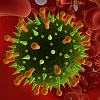IPad Apps

Rocks and Minerals

Structure of earth

Simple Machines

Magnets

Animal Adaptations

Plant Adaptations

Diseases

Solar System
Welcome to FunAppSchool

IPad and IPhone Apps
Educational Games for IPad and IPhone. English Grammar and Science Apps for Elementary and Middle School Kids.
Petroleum Products
We know that petroleum is used to power vehicles and is one of the world’s main sources of energy.
Would you be surprised if you knew that almost everything that we use today has some form of petroleum in it? Yes, it seems hard to believe, yet it is true.
Once crude oil has been sent to the refinery, it is separated into its various components through complex chemical processes.
Some of the main products of oil refineries are diesel fuel, gasoline, jet fuel, kerosene, asphalt, paraffin wax, tar, lubricants, liquefied petroleum gas (LPG), and other products.
Kerosene is used as a burning agent at production facilities. Asphalt and tar are used especially in constructing roads and buildings.
Wax (paraffin) is found in frozen food packaging, lubricants are light machine oils, mostly found as greases and motor oils for vehicles and power plants.
A variety of petrochemicals (petroleum mixed with other chemicals) can be found in plastics, certain clothes materials, and household cleaning products (surfactants).
Petroleum is also found in sports equipment, slippers and shoes, toothpastes and cosmetic products, in jewellery, equipment, shampoos and soaps, eyeglasses, artificial rubber goods, mattresses and covers, threads, vitamin capsules and even salad bowls.
Many other products have petroleum in small quantities and most of them we would never even guess had it.
Petroleum is considered a hazard to the environment because of the greenhouse gasses it releases when it is burned.
Petroleum products release harmful pollutants like carbon monoxide, nitrogen oxides, particulate matter, and unburned hydrocarbons that also contribute to air pollution.
This does not mean that we need to stop using products with petroleum in them, because that would be impossible to do, since almost everything has it.
We simply need to be careful that when using products with a high content of petroleum and try to live as healthily and as environmentally friendly as possible.







